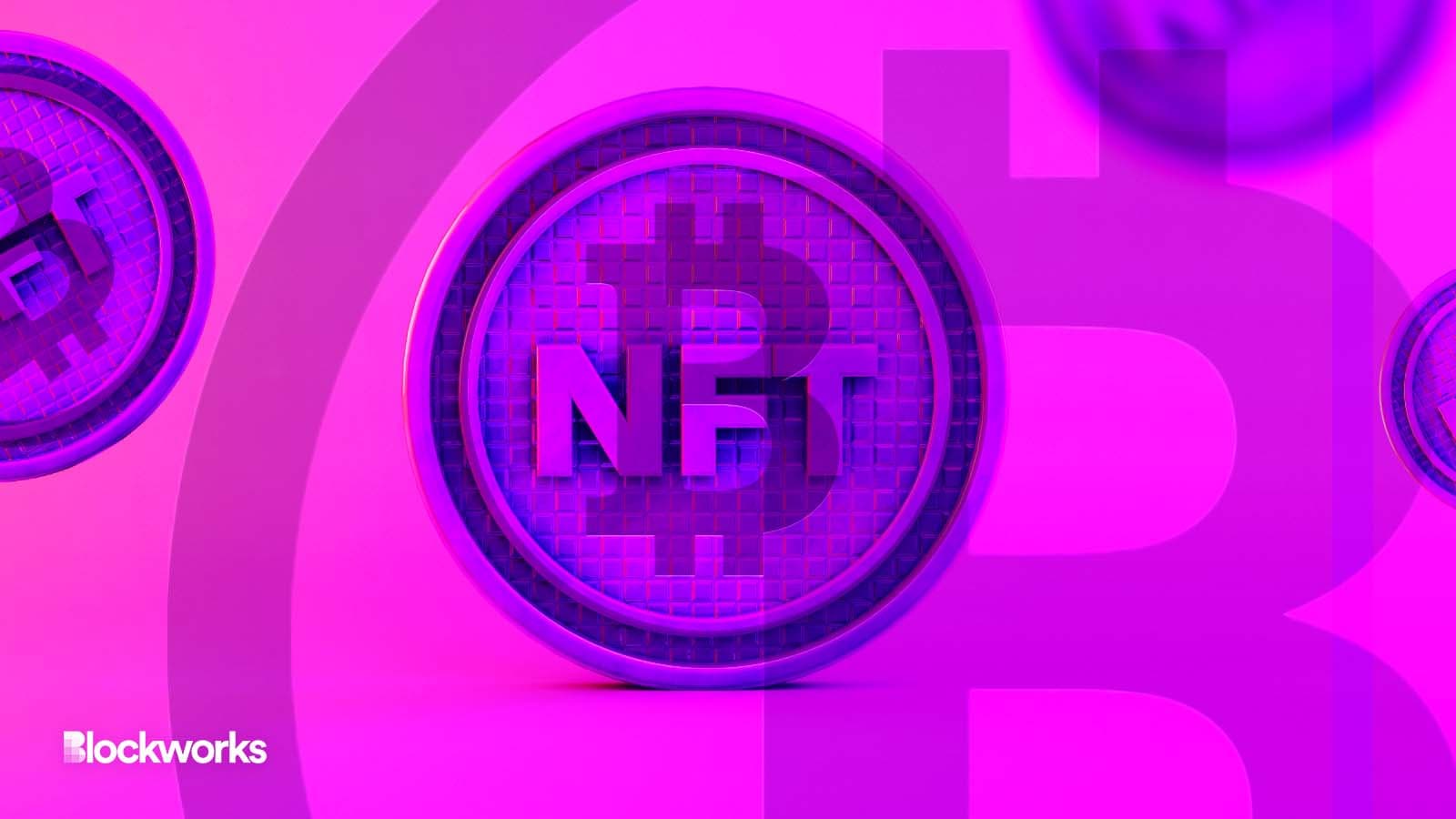Bitcoin NFTs: Love ‘Em or Hate ‘Em, You Can’t Ignore ‘Em
If Ordinals were to take off, they could create congestion and hefty fees on the Bitcoin blockchain

Nzryldrm and Lucas Agr/Shutterstock.com modified by Blockworks
Ordinals, a non-fungible token protocol, has launched on Bitcoin mainnet, causing a ruckus in the community.
Ordinals were created by software engineer Casey Rodarmor, and can be described as a numbering scheme for satoshis — the smallest denomination of bitcoin — which can track and transfer individual sats and allow “inscriptions” or “digital assets” to be uniquely identified.
“Ordinal NFTs use an accounting-like method to distinguish between single (fungible) satoshis, making them non-fungible (differentiated) in this closed-off system,” Blockworks Research analyst Matt Fiebach said.
Ordinals store texts, images, SVG, or HTML on-chain and can be authorized through a transaction — they can also be purchased, stored and gifted.
This was accomplished using a loophole from the Taproot upgrade in 2021, which enabled “practically unlimited (capped by block size) storage using Opcodes, an executable script in a txn that can store arbitrary data,” Fiebach said.
Rodarmor notes in a blog post that these digital artifacts will be held to a “higher standard” than NFTs, as they can not be stored off-chain and on centralized servers with back-door keys.
“Inscriptions are immutable and on-chain, on the oldest, most decentralized, most secure blockchain in the world,” Rodarmor said. “They are not smart contracts, and do not need to be examined individually to determine their properties. They are true digital artifacts.”
A torn community
Bitcoin’s purpose has been hotly debated since its inception, and not all community members are thrilled about Ordinals.
For a long time, community members have been torn on whether Bitcoin’s ledger should simply be a space to record financial transactions or a distributed data store for different applications, the pseudonymous Pourteaux wrote in a blog post.
Before the Taproot upgrade, Opcode was limited to 80 MB, Fiebach said.
“Many BTC supporters believe block space should be reserved for sending BTC rather than storing data, or anything else, given BTC is supposed to be peer-to-peer electronic cash,” he said. “Others may argue that increased demand for block space could be considered a positive for the long term sustainability of securing the network.”
The pros and cons
So, what are the chances of Bitcoin becoming the next big hotspot for NFTs?
One of the appeals of purchasing NFTs on Bitcoin is the price. Since the Segwit upgrade in 2017, Bitcoin has already included a heavily discounted eip-4844-style blob space, cryptocurrency researcher Eric Wall tweeted.
“That blobspace is now being abused by taproot to make full-block (≤4mb) bitcoin NFTs 10x cheaper than ETH L1,” Wall wrote.
Despite this, a legitimate concern remains.
As Ordinals don’t operate on a separate sidechain or protocol and run on bitcoin mainnet, popular usage of Ordinals will increase transactions, creating congestion and hefty fees.
“Even though with op_codes, the cost of storing an image on Bitcoin is much cheaper than Ethereum, it is still much more expensive to store data on-chain than through centralized data storage services,” Blockworks Research analyst Ren Yu Kong said.
If NFTs on bitcoin were to take off, and more people began storing images on the network with op_codes, transaction fees per block would significantly increase and full nodes will have to download much more data, Yu Kong said.
“Over time, that leads to higher technical requirements to run a full node, and thus from a security standpoint, likely leads to further centralization for the set of full nodes verifying the chain,” he said.
Get the news in your inbox. Explore Blockworks newsletters:
- The Breakdown: Decoding crypto and the markets. Daily.
- 0xResearch: Alpha in your inbox. Think like an analyst.






